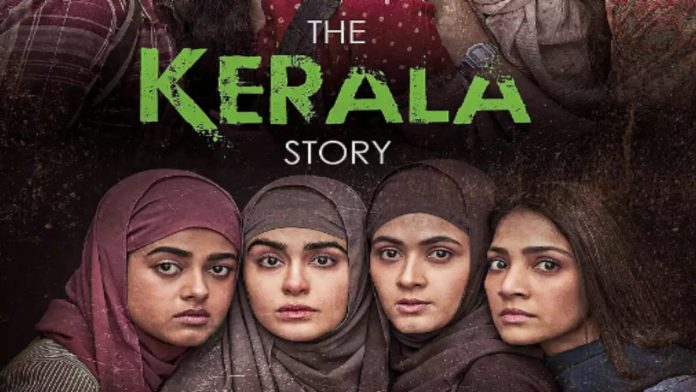NEW DELHI : The Supreme Court on Thursday stayed the West Bengal government order banning the film ‘The Kerala Story’.
A bench, headed by Chief Justice of India D.Y. Chandrachud and comprising Justices P.S. Narasimha and J.B. Pardiwala said that prima facie, it is of the view that the prohibition by West Bengal is not tenable on the basis of material before the court and “May 8 order shall remain stayed”.
The apex court also asked Tamil Nadu government to provide adequate security to every cinema hall for safe screening of ‘The Kerala Story’ and ensure safety of moviegoers, after theatre owners decided to stop screening the film due to security concerns.
The apex court bench also directed the producer to put a disclaimer in the movie by 5 pm on May 20 on the claim that 32,000 Hindu and Christian women were converted to Islam, reports PTI.
According to the apex court, the disclaimer should say that “there is no authenticated data to back up the suggestion on figure of conversion and the film represents the fictionalised version”.
The bench, also comprising Justices P S Narasimha and J B Pardiwala, said it would like to watch the movie before proceeding to decide the pleas challenging the grant of CBFC certification. It said the petitions will be heard in the second week of July.
The bench also took note of submissions that there was no ban on the film in Tamil Nadu and asked the state government to ensure the safety and security of moviegoers. During the hearing, it said that statutory provisions cannot be used to “put a premium on public intolerance”.
The bench said it is the duty of the state government to maintain law and order as the film has been granted certification by the Central Board of Film Certification (CBFC).
“Bad films bomb at the box office,” the bench said.
“The legal provision cannot be used to put a premium on public intolerance. Otherwise, all films will find themselves in this spot,” the bench, also comprising justices P S Narasimha and J B Pardiwala, said during the hearing.
The states cannot sit in appeal over the grant of certification to the movie, said senior advocate Harish Salve appearing for the producer of the movie.
Salve said nobody has filed any statutory appeal against the grant of certification to the film and referred judgements to buttress his submissions that it was held that the Supreme Court cannot sit in appeal over the CBFC certification.
The top court was hearing cross-pleas with the producer of the film challenging the ban on its screening in West Bengal and the decision by theatre owners in Tamil Nadu to not show the movie in the state while journalist Qurban Ali has challenged the Kerala High Court order refusing to stay the release of the film.
‘The Kerala Story’, starring Adah Sharma, was released in cinemas on May 5. Directed by Sudipto Sen, the film claims women from Kerala were forced to convert to Islam and recruited by the terror group Islamic State (IS). (With inputs from PTI)







Excellent coverage of the SC decision. Three cheers for Freedom of Expression and artistic freedom. India is truly the “land of the free”.
“Three cheers for Freedom of Expression and artistic freedom. India is truly the “land of the free”.”
>Anon-he_mouse squeaks ;-P , But hang on a minute…
“The Myth of the Holy Cow” by Dwijendra Narayan Jha (2002) | © Verso Books
https://archive.org/details/TheMythOfHolyCowJha
https://www.worldcat.org/formats-editions/469864666
“Reason For Ban- The Myth of the Holy Cow looks into the custom of eating beef in India. The book reveals the reality about the Hindu belief that cows are holy animals. Jha cites numerous Hindu, Buddhist, and Jain scriptures to support his claim that consuming beef has never been frowned upon historically. He continues by saying that beef was actually used as an offering to the local deity in numerous places all over India.”
” Cultural historian Dwijendra Narayan Jha quite literally took the bull by the horns when he published The Myth of the Holy Cow in 2001. India’s Hindu majority believes the cow to be sacred and abstains from eating beef. Because of this, the slaughter of cows is illegal in many states in India. But Jha unearthed irrefutable textual evidence in Vedic scriptures and medical texts that showed Hindus believed eating beef and slaughtering cows wasn’t taboo until the 19th century. When he published his findings, the book was promptly banned by the Hyderabad Civil Court and the author received several death threats.”
“The Hindus: An Alternative History” by Wendy Doniger Viking Books ©
” In 2009, Sanskrit scholar Wendy Doniger published an alternative history of Hinduism, drawing upon perspectives of women, animals, outcasts and Dalits to contradict the sanitised, patriarchal views of Hinduism. The Dalits, who make up almost 17% of India’s population, are part of the lowest caste and have long suffered the stigma of ‘untouchability’ due to their menial professions. On the other hand, outcastes were historically those who belonged to no caste, perhaps as a result of inter-caste marriage. Hearing about these marginalised voices outraged some of India’s Hindu population and the book was consequently banned for ‘deliberate and malicious acts intended to outrage the feelings of any religious community’. It has since returned to the market. ”
“The Land of the Lingam” by Arthur Miles
“In 1937, Arthur Miles published a book to help Westerners understand Hinduism. He evoked it as a series of impenetrable superstitions and stated that the worship of the lingam (phallus) was an important aspect of Hinduism, suggesting that ‘sex is the keynote of the Indian’s life’. He also wrote that India’s caste system – a hierarchical class structure determined upon birth – was brought into being solely so Hindu priests could dominate society. The book offended many people in India and was subsequently banned for its obscene content.”
1, 2 & 3 cheers?
You forgot (?) Satanic Verses.